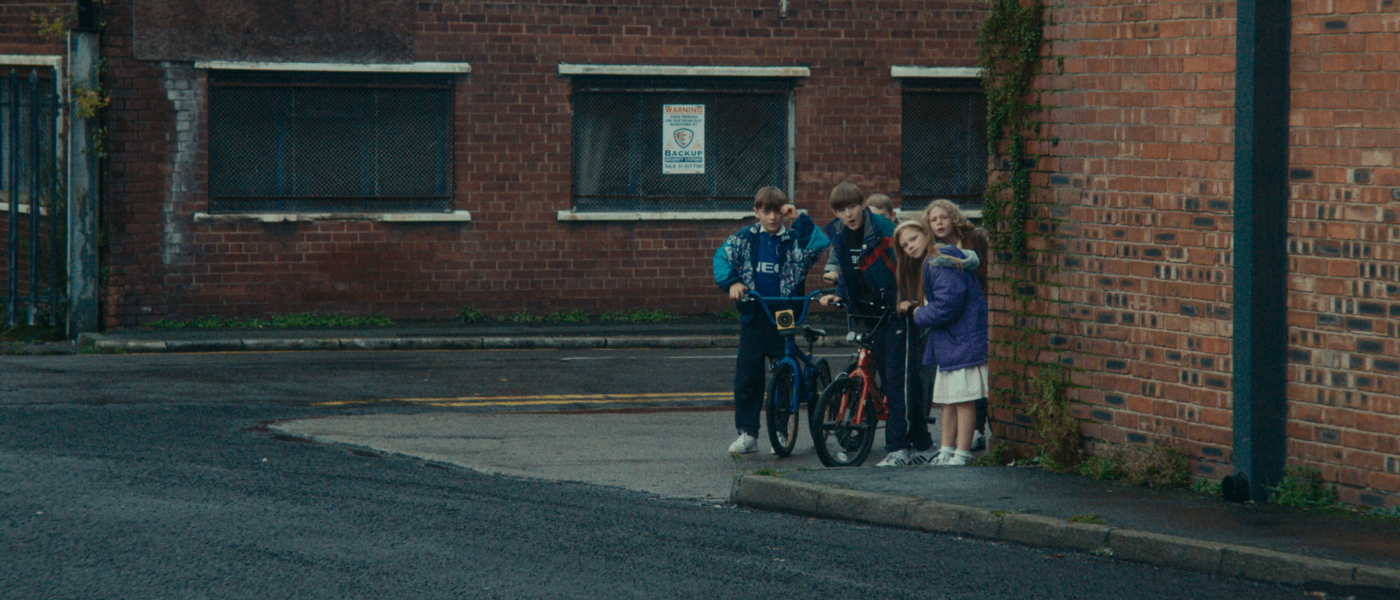Interview with Róisín Burns, Wonderwall director
by Raphaëlle Pireyre

by Raphaëlle Pireyre
In the span of a day and a night, 8-year-old Siobhan lives through an accelerated coming-of-age story in LIverpool’s working-class neighbourhood. In this red-brick Northern England, the young girl receives a talisman from a furious red-haired fairy. In her quest to find a television set to watch the Battle of Britpop between Blur and Oasis, she sets off on a solitary journey - a true twilight of the idols - through a deeply masculine world ruled by St Patrick, trade unions, and the cult of football. When night has settled, she no longer recognises her city, transfigured by shadows. She encounters old workers’ songs, speeches about social struggle in which nobody believes in anymore, and a factory that - at night - takes on airs of a castle haunted by ghosts, a swan song for working-class culture.
Interview with Roísín Burns
Liverpool’s working-class neighbourhood
From the beginning, I liked the idea of a young girl spending the night trying to get home, visiting places she knows after dark, and for those familiar places to take on an epic, unsettling dimension. The film is a small, working-class Odyssey, and Siobhan is like a Liverpudlian Alice in Wonderland. With Anthony Gormley’s iron statues on the beach, Liverpool’s post-industrial landscapes already evoke fairytales. They also bring back my guilt about having left this city, while my brothers - to whom I have dedicated this film - have stayed behind.
I wrote this story drawing on childhood memories that haunt me, like the encounter with the prostitute, which really happened. I’m reclaiming my city by shooting films here. The cinematographers love its light, its skies that change five times a day. Even though it’s always risky for continuity, it’s part of Liverpool’s poetry and romanticism.
The Battle of Britpop
The Battle of Britpop was a landmark event in my childhood. The media played up its symbolic dimension of the class struggle, which we completely identified with. Liam Gallagher, with his Irish name, had the same working-class accent as us. He was very charismatic, proud of his roots, and pissed off the toffs: he was our hero. Siobhan’s political awakening happens through music. The film starts with a pop veneer, with the faces of stars enlarged and plastered all over the city, then moves onto folk songs, rooted in workers’ struggles.
In 1995, I was unknowingly living through the end of the working-class world and one of the last docker’s union movements. The heroes of the city are mostly men. Siobhan is surrounded by boys who admire other boys and she is sometimes excluded, even dominated.
The cast
I really wanted to work with working-class children, who have the local Scouse accent. We saw 800 children, we knocked on every door in the council estates, the sports clubs, the community centres. Tammy immediately fascinated us. She has an unusual face that you want to film, and a very rich inner life. We worked carefully on imitating Oasis, but much of the children’s acting relied on improvisation and on their energy, which drove the crew insane. They wreaked total havoc on the set!